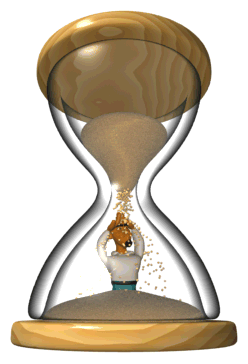I’m Perfect For The Position, So Why Did I Get Screened Out?
Great question. Probably an obvious answer.
The easy answer is, you probably aren’t perfect for the job, at least from the recruiter’s or hiring manager’s perspective. Now that doesn’t mean you aren’t perfect. It may mean you didn’t communicate effectively as to demonstrate just how perfect you are. So you get screened out.
It has been my experience in close to 30 years as a recruiter that candidates too often ignore the competition that also claim to be perfect for the job. As a recruiter in today’s economy, we can get 500+ responses to an executive level position, all claiming to be, “perfect.” With this volume of resumes, emails, phone calls and referrals, you have to demonstrate you are more perfect than all of the rest.
The real question is, “Have you demonstrated you are more perfect than all the others?” I realize candidates generally have limited information about the position, so demonstrating this can be difficult. It isn’t possible to give every screening detail. Anyone who has hired people knows this. Most hiring managers experience the same thing. When you are looking to hire some one you too get resume overload. So how do you prioritize all these resumes, calls, emails, and referrals? Most have set up some sort of checklist to reduce the number to a manageable figure. Some things on the checklist include, industry, company size, compatibility with products, systems, organization, title, turnover, etc. This is important information that is missing from many resumes. The result is you may get screen out or put in the infamous “B” pile.
The next step might be to further read the resumes that passed the checklist to reduce the number even further. It is at this stage that you must really demonstrate that you are perfect for the position. From a recruiter’s perspective this is the point where I want to see how your accomplishments align with what the client is looking for in the person they hire to deliver the results. This is the, “So why did I get screened out?” point.
Here are some suggestions that might help you to not get screened out if you really are perfect:
- Customize your resume as much as possible to directly align with the job. Don’t send the one-size fits all resume.
- Your bullet points must include quantifiable results, time frame to accomplish, and be believable.
- If you don’t know the exact expectations, some research on the company might give you some tips. If your research highlights issues, try to extrapolate how your functional area will participate in these issues and then how your accomplishments align.
- Don’t limit your research to the company’s Web site. Look for press releases, announcements, industry trends, local newspapers, business journals, industry periodicals, and Google the company and its competitors. It will take some work, however, the pay off is not getting screened out.
- Use a two column cover letter that compares your experience and accomplishments with what their needs are. (You can download a free sample cover letter on our Web site. (CLICK HERE to get yours)
- Keep your resume to two pages. Don’t have so much detail that the important points get lost.
- Make sure you have the basic screening information on your resume. Step back and be objective as to exactly how you screen resumes when you were a hiring manager with a stack of 300 resumes on your desk.
There are a lot of reasons you can get screened out, even if you are perfect. I’m convinced doing these few things will at least increase the odds in your favor. I’m sure they will increase the odds if you really are perfect for the position.
Join our Linkedin Job Search Networking Group for many more tips on helping you in your job search. CLICK HERE to join – it is free.
Our job search workbook deals with all of the issues one encounters in a job search. To review the book and have it sent to you for just $5 CLICK HERE. Readers rate this book 4.5 stars out of 5.







